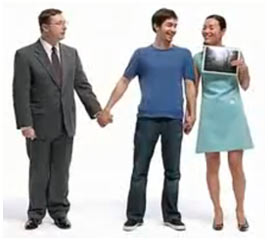The word otaku has come to represent the culture both in Japan and around the world of embracing awesomely nerdy things, from anime to manga to video games and those wonderful prepainted anime figures. The word otaku is just a polite word literally meaning “you” or “your family” — an example of how it’s used might be a housewife talking to her neighbor and saying, otaku no ko wa yoku benkyo shimasu ne, meaning “Your child really studies really hard.” The word possibly acquired its unique secondary meaning through the local dialect of Tottori Prefecture, home of several of the Gainax founders, where otaku is commonly used as a general second person pronoun, or maybe it’s just because anime fans are overly aloof and polite when they talk. Although being a member of the worldwide nation of otaku-zoku (lit. “otaku tribe”) is kind of cool, not everyone in Japan is keen on us a group, which is kind of silly since everyone has a strong emotional connection to something, even if it’s so-called normal stuff like perfume or shoes or sports. In Apple’s “Got a Mac?” ads there was one featuring a Japanese woman who represented “the latest digital camera from Japan.” She looks at John Hodgman and says, “Who is this person? He kind of looks like an otaku, doesn’t he?” I’d happy be counted with John any day of the week.
Speaking of otakus, our little corner of the Internet got some unexpected attention when Meg Whitman’s campaign for governor of California accidentally sent a tweet with a typo which caused readers to go to a different link entirely: a YouTube video of a “Japanese” man wearing a tutu and playing rock music, which caused more than a little confusion. In reality it was H.J. Freaks, a Korean bassist who dresses up in (female) anime costumes and plays along anime songs for the enjoyment of YouTubers and whatever the hip slang word for users of the Japanese video site Nico Douga is. He’s a damned good musician whose goal is “to be the world’s greatest stupid idiot bass player.”

The “otaku tribe” embraces nerdy things but are sometimes mocked by “normals.”














